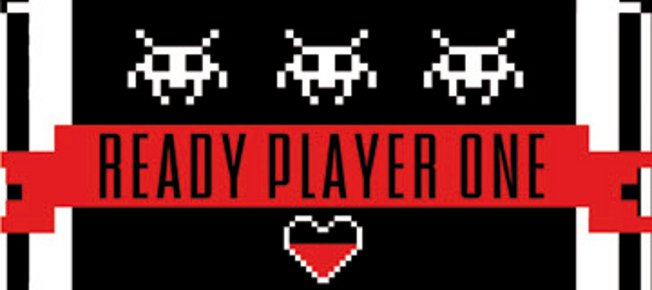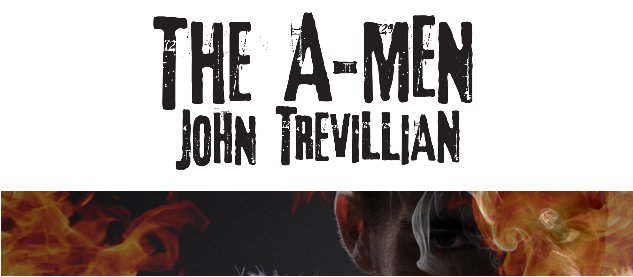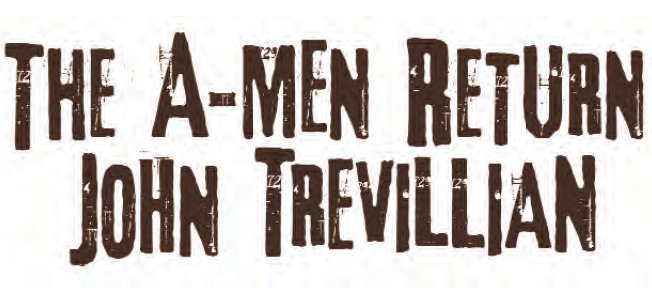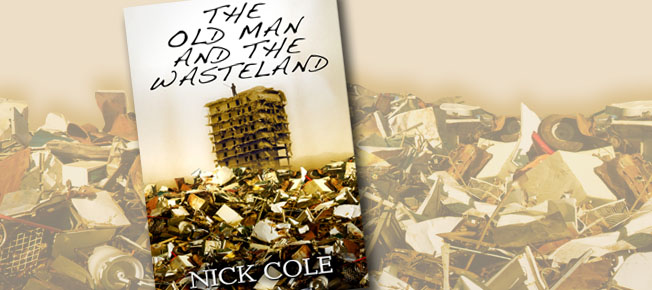Ready Player One
Ernest Cline
Random House. August 16, 2011
384 Pages (or 15 hour audio narrated by Wil Wheaton)
Set against a back splash of a ruined world where most of the inhabitants have escaped to live online, Ready Player One ferries us to a future that’s all too feasible. It’s 2044, and a kid named Wade is our lumpish progeny, nurtured at the teat of technology and having little interest in the real world or even in the real Wade. When we meet our orphaned hero, he lives in a teetering stack of trailer homes on the outskirts of nowhere, grumbling about the absence of God, scavenging tech equipment and relying on his wits to stay alive and online. 90% of his life is lived in OASIS, an enormous, largely benevolent virtual reality derived from multiplayer online games (or MMORPGs). Put on a visor and a pair of haptic gloves and OASIS is your retreat from the physical world: a vast collection of possible and impossible worlds with a stable economy, perfect weather, jobs, and free education (with travel and “material” goods available at nominal micro-transaction prices).
In OASIS, Wade becomes Parzival, a low-level avatar who attends a virtual public school. Beyond his approaching graduation, Wade’s future looks pretty bleak, but then James Halliday, the creator of the OASIS system, bequeaths his company and entire fortune to the first person to find the “Easter Egg” he hid in in the system, and Wade sets out to find it with the same kind of instincts that keep his body functioning in the real world.
Halliday was an introverted visionary, obsessed with the 1980′s – a formative decade for him and for computers and gaming. The keys to finding his Easter egg are hidden in early gaming puzzles and 80′s culture references. Wade becomes a serious “gunter” (short for egg hunter), methodically studying old text games, becoming an expert on 80′s consoles, episodes of Family Ties, Japanese cartoons, movies, commercials, music videos and minute details of the life of James Halliday that are all archived in OASIS. Wade’s avatar races to different locations and solves puzzles to progress on the scoreboard, much like playing in an actual MMORPG. There are friendly competitors as well as drones of a powerful super-corporation bent upon winning, but since Wade told us at the end of the brief, seemingly tacked-on opening “Chapter 0000” that he’s won, this is just the tale of how. What’s telling about Wade is that he has only the vaguest plans for the prize itself. And since his focus is on the achievement rather than the goal, I think that’s where Wade loses me a little. This is usually the point where the hero does it all to save the farm…but perhaps the farm comes later.
While Ready Player One is an engaging read, I was disappointed by a couple things – one of them being the “I won and here’s how” self-spoiler. It’s not that the journey isn’t good fun, or that I’d seriously consider Wade might not win, but I’d like to have gotten there with him rather than being lead down the path. Actually, now that I’ve said that – there might have been more interesting alternatives to him winning, but those were roads the author firmly closed to that pesky reader’s imagination. By doing so, the story cannot help but be predictable – ancillary characters appear and disappear as needed, and any threat to Wade carries little punch.
The book also tends to tiptoe around what I consider to be the intriguing issues, ideas that are tossed into the morality scales but remain unweighed. Should we escape to better, created worlds, or work to fix the real one? We may have such a decision ahead of us. Would that sort of world free or shackle us? Open virtual public schooling? Part of me says “great idea!” and the other part hangs back, trying to repair the vision of a nation of pale, non-socialized humans that might result. I can only assume from his light hand with the major “problems” that the author intends to return to this setting, much like Suzanne Collins’ The Hunger Games series. Having created a near future when our grand-kids have retreated from the real world is far too interesting a premise not to smell “sequel” to me. I just hope I’m just smelling sequel and not bad movie.
A big part of the book’s attraction is rooting Wade’s achievement on his knowledge of the 80′s – a time most of us lived through and remember with nostalgia and a sudden desire to go to the mall. If you think it unlikely that a young man would want to study a past decade so thoroughly, imagine the library parking lot the day Bill Gates decides to award his fortune based on a Civil War quiz. Having, myself, survived and possibly thrived in the 80′s, I enjoyed Wade’s visits to OASIS virtual shrines of pop culture: planets called Gygax, worlds based on Blade Runner, RUSH lyrics and Zork, and boxes of Cap’n Crunch in every virtual kitchen. I enjoyed the references as part of my own history, and as Wade continues his studies and quests, the book has the interesting perspective of a fictional future looking into our remembered past.
I really looked forward to reading this book, but feel that the probable sequels will flesh this story out better. Ready Player One feels quickly written and is quickly read. The author, Ernest Cline (whose writing history includes the movie Fanboys) might have made this into a very good 600 page novel rather than what seems a readable screenplay treatment that strokes our nostalgia. Take an intelligent young man with time on his hands, add fodder for the reader’s memory mill, gaming references, light romance, an evil corporate adversary and the pursuit of treasure, and what results is a pleasant, late summer beach book – entertaining without the burden of substance. I’d recommend it as such, possibly for young adults – but it saves most of its fun for those of us who lived, gamed and struggled to mature in the 80s.
© 2011, The Indie Mine. All rights reserved.





